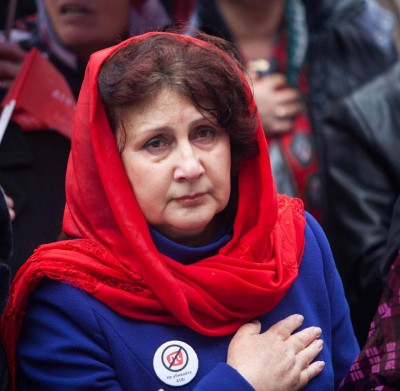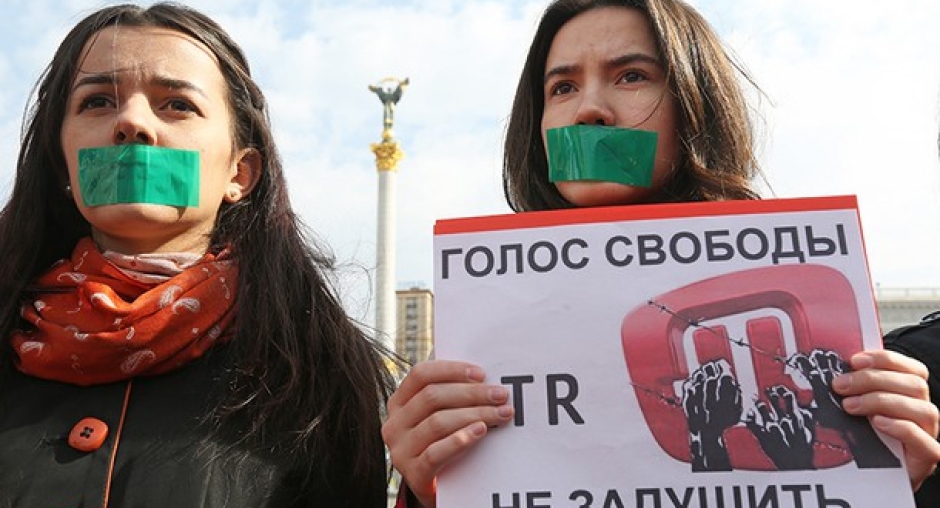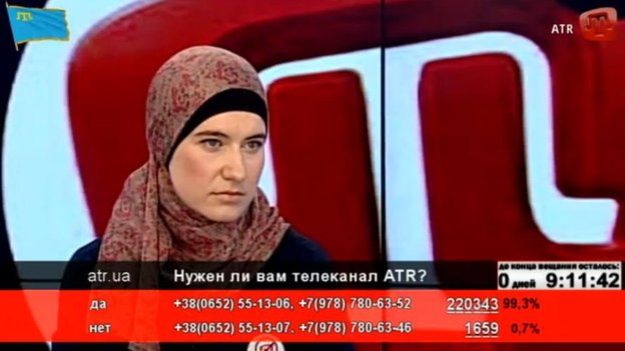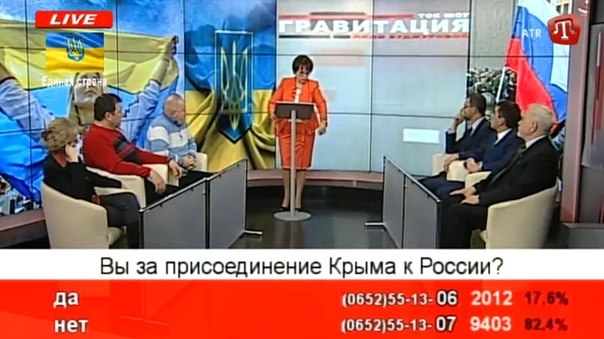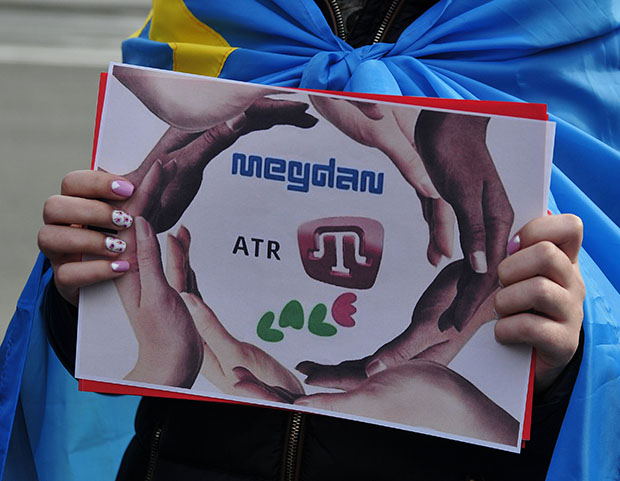No Crimean Tatar media outlet could ever do as much harm to Russia’s reputation and its ability to attract any members of that nation to its side as Moscow’s decision to shut down ATR and other Crimean Tatar broadcasters and publications already has, according to Anatoly Baranov, a Moscow commentator who heads the Forum-MSK.org portal.
Indeed, he argues
, the Kremlin should recognize that now those opposed to Moscow will become even more hostile and turn to the Internet as a source for news. And it should “immediately close down” the Russian agency that took this counterproductive step, a view with which it is almost impossible to disagree.
In recent months, both Russian and Western media have devoted ever less attention to the Russian Anschluss of Crimea, focusing instead on Vladimir Putin’s aggression in the Donbas. But by this action, Moscow has led ever more people to look at what is taking place on the occupied Ukrainian peninsula and to be horrified.
Not only international media and human rights watchdog organizations like Amnesty International but also the OSCE and the European Union have denounced what Moscow has done in this case, but also sparked intense criticism by individuals and groups within Russia who had hewed to the Kremlin line.
Emblematic of this reaction is an open letter from Ravil Gainutdin, the head of the Council of Muftis of Russia (SMR) and the Muslim Spiritual Directorate (MSD) of the Russian Federation, to Sergey Aksyonov, head of the Russian occupation in Crimea, and Nikolay Nikiforov, Russia’s communications minister.
Gainutdin writes that the shutting down of ATR and other media outlets in Crimea “is becoming an enormous shock for the Crimean Tatar people and a big loss for its culture” and carries with it “serious risks for the process of integration of Crimean Tatars into the Russian political-legal and cultural-historical space.”
Moreover, the Moscow mufti continues, these actions not only “can provoke colossal social tensions in the Republic of Crimea” but also cause the international media to devote more attention to the Crimean Tatar issue. Even more seriously, they can lead to “the marginalization” of that nation and to the growth of “extremist” organizations and movements.
And, Gainutdin concludes, “the closure of ATR
in the present-day geopolitical and economic situation and under conditions of the intensification of foreign pressure on the Russian Federation above all inflicts harm on the policy of our President Vladimir Vladimirovich Putin, who has devoted enormous efforts for the social-economic development of Crimea.”
Gainutdin’s criticism from a loyalist position is certain to echo not only among Russia’s millions of Muslims but also among others who are appalled by the increasing repression by the Kremlin against the media in the Russian Federation, a reaction that makes his words doubly troubling for Putin and his regime.
But the more immediate consequences are beyond Russia’s borders: Moscow’s actions against Crimean Tatar media have already sparked protests in Crimea, despite the increasingly authoritarian rule of the occupation forces. But even more, they have re-energized the leaders of the Crimean Tatar nation who have been forced out of their homeland by Putin and his policies.
Yesterday, Refat Chubarov, the head of the Mejlis who is now resident in Kyiv, said that he is “one of those who is calling on everyone to be prepared for the worst, for open war with Russia” because the conflict with that “enemy” cannot be ended or “the threat” it poses to Ukraine eliminated until Crimea is returned to Ukraine.
“Therefore, for us,” he continued, “the war will be ended only when Crimea will be within the Ukrainian state.”

